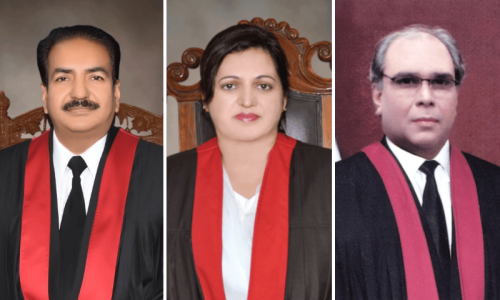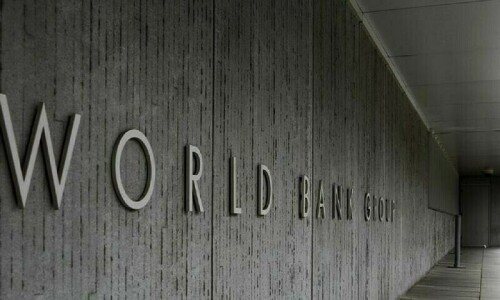This week, the people of Islamabad elected their first local government. Now, following the election of union council chairmen, the race is on to see who will be the first-ever mayor of Islamabad - more than 50 years after the federal capital was founded.
But one may ask for what? What powers will the mayor have when a government-appointed chief officer (CO) will be looking over his shoulder?
Indeed, the federal law that gave the “gift of local government” to the people of Islamabad asks the mayor to “provide vision for leadership and direction for efficient functioning of the metropolitan corporation in coordination with the government agencies”.
His job also entails presenting tax and budgetary proposals, devising a mechanism for accountability and oversight in municipal matters, oversee the formulation and execution of annual development plan and delivery of services and functioning of the metropolitan corporation. And twice a year, the mayor will report the performance of the metropolitan corporation to the elected members of that house.
The list of tasks given to the mayor to execute certainly does not read like it grants the metropolitan house the power to plan and govern the city as elected representatives of the people of Islamabad.
And the powers of the CO leave no room to entertain any doubts. The CO has been made responsible for “coordination, internal audit, human resource management, public relations, legal affairs and emergency services of the corporation.” In other words, the CO will hold executive authority in the new democratic set up. The law says, “the CO will ensure the business of the metropolitan corporation is carried out in accordance of law.”
In fact, a separate chapter on local government’s relations with the federal government further ties the hands of the mayor. It grants the federal government wide control over the metropolitan corporation.
Indeed, the law couldn’t have been more specific when it says, “where situation demands immediate action and the local government fails to comply with the directions given to it the federal government may direct the officer authorized by to take such action as situation demands.”
As if that was not enough, the federal government will appoint a supra Local Government Commission which will conduct annual and special inspections of the Islamabad local government - and “if desired by the government” carry out inquiry on any given issue.
It looks the government needs the commission, to be headed by a retired civil servant, as a proxy for taking punitive actions. For the commission can “recommend suspension of mayor, deputy mayor, UCs chairmen and vice chairman for maximum 90 days for an inquiry. Commission’s recommendations will be binding. If the accused officer is found guilty, the commission can recommend his or her removal.
Free and Fair Election Network Head of Programmes Muddassir Rizvi sees the Mayor of Islamabad nothing more than an advisor. “I don’t see any concrete decision-making lying with the mayor.”
“It is obvious that the Chief Officer will be wielding executive powers for the federal government, free to accept, reject or amend even the will of the elected metropolitan corporation, not just its recommendations and proposals,” he said.
A recently retired federal secretary, who had worked with the Gen Pervez Musharraf’s local government system, however, believes that regardless reduced powers “the mere formation of elected local governments is a huge step forward.”
His hope was that voters’ pressure to perform will make Islamabad’s “powerless” 600 councilors and 50 union council chairmen and vice chairmen strive for power to rise up to popular expectations.
According to him, the Capital Development Authority mandarins have already started discussing the stress that PTI’s emergence as a potent force in the local elections entails.
“Let’s see how things develop in the coming weeks,” commented a senior member of the CDA Board to Dawn. “At the moment it is all hullabaloos,” he said, “but it wouldn’t be easy to keep CDA’s doors shut on the power of vote.”
Nobody was expecting the PTI to make so good in Islamabad after having been thrashed by the ruling PML-N in Punjab, and the PPP in Sindh. The significance of Prime Minister Nawaz Sharif installing Dr Tariq Fazal as Minister for Capital Administration and Development Division and overlord of the mighty CDA is not lost on the PML-N detractors.
In the election for chairmen of 50 union councils of Islamabad, the PML-N leads with 19, followed by 17 of the PTI and 13 independents. Both the national parties are now wooing the independents to win the office of mayor and three deputy mayors, to be held early next year.
In any case, whichever party wins most independents to its side, politics dictates it would be a minority local government.
Minority governments, whether at central or local level, meet pitfalls, more so in the kind of confrontational politics the PTI and the PML-N have honed for each other.
So, unlike the optimists, the realists could be waiting for the fireworks when the Islamabad Metropolitan Corporation gets going, with the powerful PML-N looming large over it.
Published in Dawn, December 4th, 2015












































